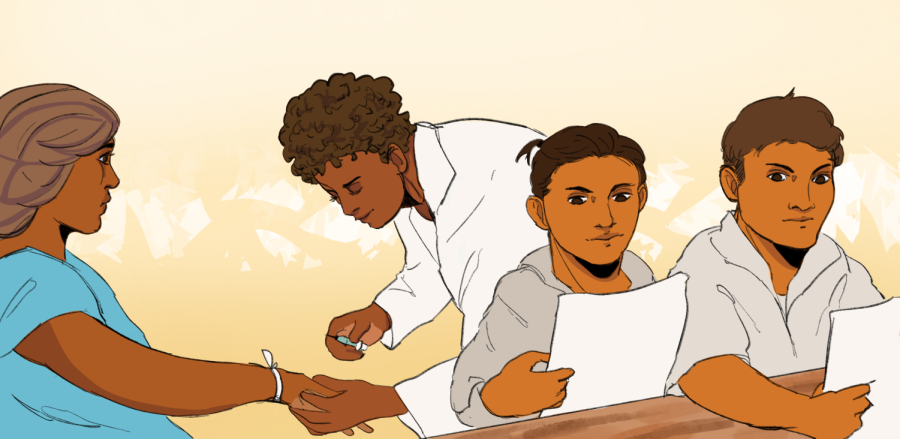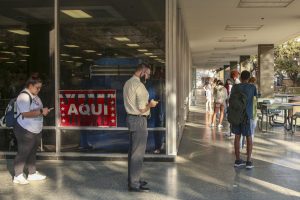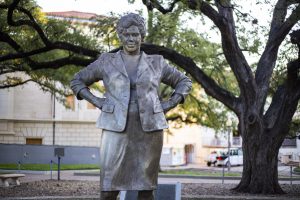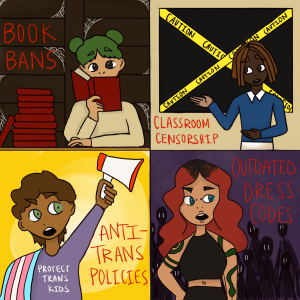UT faculty proposals receive President’s Award for Global Learning
October 3, 2022
Two teams led by UT professors and international partners received the 2022-2023 President’s Award for Global Learning for their proposals.
The President’s Award for Global Learning is a program that provides funding to conceptualize and implement international research projects. One proposal aims to improve wound care and prevention methods at hospitals in Kenya. The other addresses language loss through context-based literacy endeavors in the Peruvian Amazon. The teams recruit students from diverse disciplines to devise project ideas and partake in on-site trips to tackle international challenges.
Nursing associate professor Julie Zuniga and mechanical engineering professor Janet Ellzey wrote one of the winning proposals. Titled “Using Local Resources to Treat and Prevent Wounds in Eldoret, Kenya,” it aims to target Kenyan hospitals where patients often end up developing wounds during hospitalization due to the lack of resources and manpower, Zuniga said.
“Every bed in Kenya has two people sleeping in it,” Zuniga said. “There are lots of barriers to getting the right care, but wound management is something that the nurses felt they could address.”
With 12 elected students, Zuniga said the team will work with the Academic Model Providing Access to Healthcare — a collaboration between Moi University in Eldoret, Kenya, the Kenyan Ministry of Health and 10 North American universities — to devise enhanced methods of wound care.
Desirée Pallais-Downing, an assistant professor of instruction at the College of Education, and linguistics professor Patience Epps wrote the other winning proposal, “Enhancing Global Education Initiatives in Literacy Development Through an Understanding of Context.” The team wants to address language loss in Amazonian communities of Peru, where many of their 47 languages are currently at risk of extinction due to isolation.
Pallais-Downing said understanding context, such as cultural frameworks and historical aspects of literacy development in the country, is crucial in order to better serve the communities.
“If the perspective of context is taken into account, these initiatives could have much more impact,” Pallais-Downing said.
The team will work with faculty and staff from the Universidad Cayetano Heredia at Peru. Elected students will learn about international literacy initiatives in the Amazonian region and interview indigenous leaders, school faculty and families to formulate ideas related to literacy development, Pallais-Downing said.
For both proposals, interdisciplinary collaboration is essential. Zuniga said Ellzey is devising medical equipment created from local Kenyan resources so that families can build them and treat wounds themselves.
We don’t know how to create these (equipment), so it’s really nice to have people from other parts of the campus to help us,” Zuniga said.
Meanwhile, Pallais-Downing said Epps’ expertise in linguistics and orthography will be valuable in understanding different structures between languages and coming up with more effective literary solutions. The formation of students will be interdisciplinary as well, she said.
“We are requiring solutions that benefit from the knowledge in different disciplines,” Pallais-Downing said. “Learning to work collaboratively with people who have different backgrounds, even starting at the undergraduate level, is an incredible experience.”
Addressing the needs of the target regions at their eye level is also very important for both proposals. Pallais-Downing said ensuring that the provided aid aligns with existing cultural practices and values in the Amazonian communities is “the heart of the initiative.”
Zuniga said to make effective change, it’s important for researchers to continue a solid relationship with nurses in Kenya, to “meet people where their biggest issues are.”
“We need to make sure we’re highlighting their strengths and that we’re supporting their wishes first,” Zuniga said. “Because if we don’t, whatever changes we make won’t stay.”















